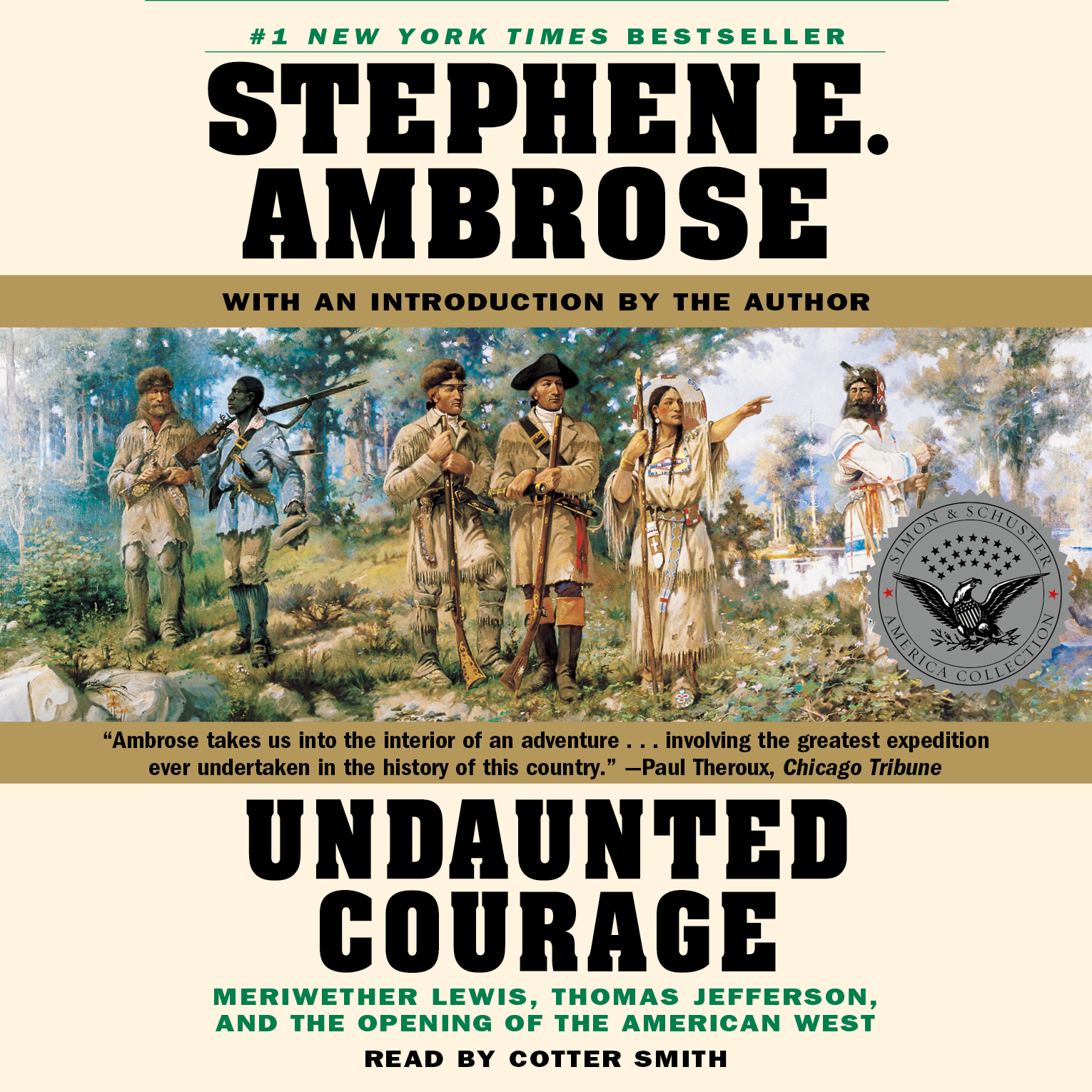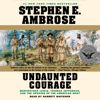Plus, receive recommendations and exclusive offers on all of your favorite books and authors from Simon & Schuster.
Table of Contents
About The Book
From the New York Times bestselling author of Band of Brothers and D-Day, the definitive book on Lewis and Clark’s exploration of the Louisiana Purchase, the most momentous expedition in American history and one of the great adventure stories of all time.
In 1803 President Thomas Jefferson selected his personal secretary, Captain Meriwether Lewis, to lead a voyage up the Missouri River to the Rockies, over the mountains, down the Columbia River to the Pacific Ocean, and back. Lewis and his partner, Captain William Clark, made the first map of the trans-Mississippi West, provided invaluable scientific data on the flora and fauna of the Louisiana Purchase territory, and established the American claim to Oregon, Washington, and Idaho.
Ambrose has pieced together previously unknown information about weather, terrain, and medical knowledge at the time to provide a vivid backdrop for the expedition. Lewis is supported by a rich variety of colorful characters, first of all Jefferson himself, whose interest in exploring and acquiring the American West went back thirty years. Next comes Clark, a rugged frontiersman whose love for Lewis matched Jefferson’s. There are numerous Indian chiefs, and Sacagawea, the Indian girl who accompanied the expedition, along with the French-Indian hunter Drouillard, the great naturalists of Philadelphia, the French and Spanish fur traders of St. Louis, John Quincy Adams, and many more leading political, scientific, and military figures of the turn of the century.
High adventure, high politics, suspense, drama, and diplomacy combine with high romance and personal tragedy to make this outstanding work of scholarship as readable as a novel.
In 1803 President Thomas Jefferson selected his personal secretary, Captain Meriwether Lewis, to lead a voyage up the Missouri River to the Rockies, over the mountains, down the Columbia River to the Pacific Ocean, and back. Lewis and his partner, Captain William Clark, made the first map of the trans-Mississippi West, provided invaluable scientific data on the flora and fauna of the Louisiana Purchase territory, and established the American claim to Oregon, Washington, and Idaho.
Ambrose has pieced together previously unknown information about weather, terrain, and medical knowledge at the time to provide a vivid backdrop for the expedition. Lewis is supported by a rich variety of colorful characters, first of all Jefferson himself, whose interest in exploring and acquiring the American West went back thirty years. Next comes Clark, a rugged frontiersman whose love for Lewis matched Jefferson’s. There are numerous Indian chiefs, and Sacagawea, the Indian girl who accompanied the expedition, along with the French-Indian hunter Drouillard, the great naturalists of Philadelphia, the French and Spanish fur traders of St. Louis, John Quincy Adams, and many more leading political, scientific, and military figures of the turn of the century.
High adventure, high politics, suspense, drama, and diplomacy combine with high romance and personal tragedy to make this outstanding work of scholarship as readable as a novel.
Reading Group Guide
Get a FREE audiobook by joining our mailing list today! Plus, receive recommendations for your next Book Club read.
By clicking 'Sign me up' I agree to the Terms of Use and acknowledge the Privacy Policy and Notice of Financial Incentive. Free audiobook offer available to NEW US subscribers only. Offer redeemable at Simon & Schuster's audiobook fulfillment partner. Must redeem within 90 days. See full terms and conditions and this month's choices.
Reading Group Discussion Points
- In Undaunted Courage, Ambrose gives us an unbiased account of Meriwether Lewis. He presents Lewis as both a hero and a flawed man. How does Ambrose reconcile these two sides of Lewis's character?
- Discuss the ways in which Undaunted Courage shares a reading experience with that of a novel. Yet how is reading history unlike reading fiction?
- Compare and contrast the social conventions of Lewis's time with those of our own -- in particular the social standing and treatment of women, blacks, and Indians. How much did the harsh physical environment that people endured affect the attitudes of the time in the arena of racial and sexual equality?
- What small but significant role did women play in the story of the Lewis and Clark Expedition?
- Discuss the way in which Ambrose clearly depicts the difficulty and confusion that faced both the Americans and the Indians when their paths began to cross. They were different peoples with different ways, and their inability to fully comprehend the other was mutual. Does Ambrose give us a sense of the inevitability of American expansion at the expense of the Indians, or does he suggest and/or imply that there might have been another way?
- Ambrose brings to life the diversity of Indians in America in the early 1800s. Now, however, there is little trace of the many tribes that Ambrose described. We often consider what the Indians themselves lost, but what does the world lose when a whole culture of people becomes extinct'. Do you think the Indians gained anything from their assimilation?
- At the end of the book, Lewis commits suicide. What does Lewis's suicide leave the living -- both in his own time and ours? Discuss the apparent irony of a man who has endured the hardships, terrors, and rigors of a cross-country expedition, returning a hero, only to commit suicide later?
- There were many firsts in Undaunted Courage. Lewis was the first white man to explore territory west of the Rockies. York was the first black man these Indians had ever seen. It was the first scientific discovery of many of the floral and fauna specimens Lewis came across during the expedition. What are some other firsts this book reveals?
- Discuss the importance of Lewis's expedition. Speculate as to why the story of Lewis and Clark has previously been treated rather superficially? Has Undaunted Courage altered your perspective on American history? Why was Ambrose so tempted to go back and reexamine Meriwether Lewis?
- Beyond its historical significance, Undaunted Courage is a story of a great and exciting adventure. Discuss the various hardships that the expedition endured, as well as the truly wondrous and spectacular sights they encountered. Speculate as to what would be encountered now if one were to follow the same voyage as Lewis and Clark.
About The Reader
Product Details
- Publisher: Simon & Schuster Audio (June 1, 1996)
- Runtime: 4 hours and 30 minutes
- ISBN13: 9780743518765
Browse Related Books
Resources and Downloads
High Resolution Images
- Book Cover Image (jpg): Undaunted Courage Abridged Audio Download 9780743518765(1.6 MB)
- Author Photo (jpg): Stephen E. Ambrose Photo Credit:(0.1 MB)
Any use of an author photo must include its respective photo credit





































